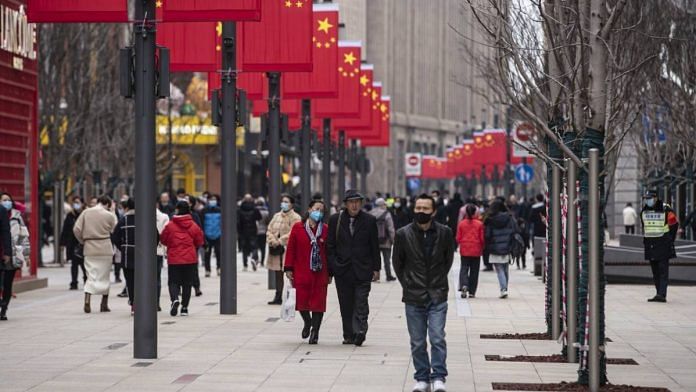There is a myth that it’s only Indians who are interested in China. But Chinese people have found new ways to learn about India in the age of social media. A growing community of Indian vloggers are shooting content in Mandarin for a Chinese-speaking audience.
Indian vloggers are overcoming the barrier of language by translating everyday Indian’s life for a Chinese audience. But even they are playing into the tropes and stereotypes that the Chinese public carries about Indians. There are limitations to translating Indian views for a Chinese audience because ideas may get lost in translation but these bloggers are attempting it.
Vloggers on Weibo with millions of followers can earn significant revenue.
“Gogoboi’s Weibo account, with nearly 10 million followers, likely brings in an additional $15,000 per post, with around ten collaborations per month, netting another $1.8 million per year of revenue from Weibo advertising” Jing Daily, Chinese fashion news website has reported.
Indian vloggers often use the Chinese term “Asan” and “third brother” in their videos while describing India and Indians. Both terms have racial connotations, but they are accepted second-hand terms used for Indians.
“Asan” is a Chinese rendition from the Wu dialect for “a sir”, used by Indian soldiers and their British officers during the colonial period. Some believe the origins of “Asan” can be traced back to Shanghai in the early 20th Century when the Sikh soldiers used to guard the colonial concessions in the city. The term was used for the Indian soldiers manning the Shanghai concession as they were seen loyal to the colonial administration. But the word has taken a life of its own and has derogatory connotations built into it.
“Third brother” is another term used by the Chinese for Indians. It is a patronising reference to a “younger brother” in the Chinese worldview of India’s place in the global sphere.
Also read: China’s concern on Afghanistan increases and a top Beijing watcher advises CCP on ‘war’
Vlogging from Jaipur for China
The most prominent of the Indian Weibo vloggers is Manu from Jaipur. Manu’s vlog on Weibo account is called “Indian third brother Manu”. He is a Jaipur-based businessman who is fluent in Mandarin and has business ties in China. He has over 411,000 followers on Weibo and makes vlogs about his daily life experiences. Manu’s vlogs are largely apolitical but sometimes delve into the difficulties his businesses face while working with a Chinese partner.
Manu promises his Chinese-speaking followers to order Indian jewellery and speaks enthusiastically about India.
This Indian vlogger also runs a hotel named Kuhu Hotel in Jaipur, which includes a Chinese restaurant. The hotel and the restaurant business is run in partnership with Chinese investors. During the pandemic, when Manu’s restaurant business suffered, he shared a vlog on the difficulties his businesses had faced.
After the Chinese partners asked Manu to pay for their share of the revenue earned from the businesses, the Jaipur-based jeweller raised the issue in one of his vlogs about the demands made by the partner. But in another vlog, he clarified saying it was all a misunderstanding as he didn’t owe any money to the Chinese partner.
Manu also spoke about social work during Covid-19 in one of his vlogs. He does regular social work and makes content about them – sometimes, they do come across as poverty fetishisation. But his Chinese followers learn about India and its people through his vlogs.
Manu had landed himself in a controversy after he ordered oxygen generators from China at the height of the second wave of the pandemic. After receiving a household-grade oxygen generator instead of the medical-grade equipment, he raised the issue in one of his vlogs, alleging that he was duped by the Chinese supplier.
Sometimes, his vlogs also become a source of entertainment for the Chinese audience as Manu tries to navigate his daily life. Chinese State media even interviewed him about the problems he faced while importing oxygen generators from China. But later, the Jaipur jeweller clarified that his concerns were resolved.
Also read: China’s Winter Olympics isn’t a sporting extravaganza. It’s invitation to an exclusive ‘club’
Little brother from India
Another upcoming Indian vlogger on Weibo with over 9,920 followers is “Indian little brother Yangtze River”.
Like Manu, ‘Little Brother’ too makes videos about his daily life, and most of the content is apolitical. Sometimes, he does delve into the competition narrative between India and China – but the vlogs are crafted for the Chinese audience.
His video on the internet speed in India had surprised some Chinese social media users who said, “The internet speed is similar, even in China.”
The vlogger’s location on Weibo says he is a student based in Nanchong, Sichuan. However, he is currently in India because of the Covid-19 travel restrictions.
Another vlogger, Xiao Chen, who has over 155,000 followers on Weibo and is currently making videos in India, conveys the diversity of local culture, food and travel destinations in her content.
What differentiates these vloggers from some of the western content creators based in China, who have become part of the Chinese propaganda machinery, is that they mostly make content about their daily lives.
The new generation of Indian vloggers are translating Indian ideas for the Chinese audience.
The author is a columnist and a freelance journalist. He was previously a China media journalist at the BBC World Service. He tweets @aadilbrar. Views are personal.
(Edited by Anurag Chaubey)



